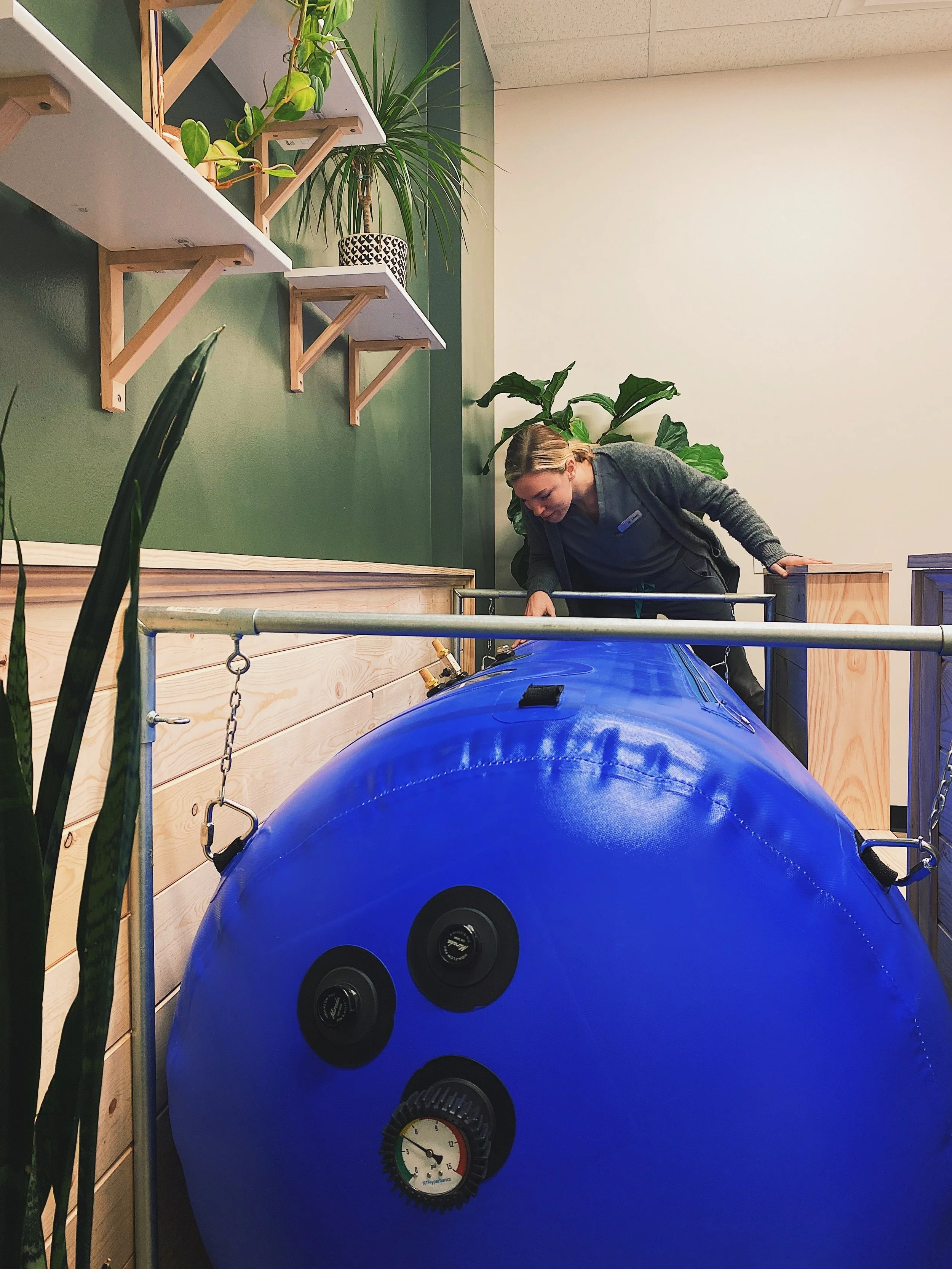Unlocking Healing Potential: HBOT's Role in Mental Health & Concussion Recovery
Concussions, often referred to as mild traumatic brain injuries (mTBIs), have gained significant attention due to their prevalence in sports, accidents, and daily life. The effects of a concussion go beyond the immediate impact, often leading to complex symptoms that affect various aspects of an individual's life. In recent years, Hyperbaric Oxygen Therapy (HBOT) has emerged as a promising avenue for treating concussion-related complications, including depression and post-concussive syndrome. This article delves into the potential of HBOT as a novel approach to accelerate healing, alleviate symptoms, mitigate further injury in concussed individuals and treatment of mild concussion.
Treatment of Mild Concussion and Depression
Concussions can lead to a cascade of physical and psychological changes, which is why TBI is almost always associated with PTSD in our Veterans. One significant concern is the link between concussion and depression. Emerging research suggests that the structural and chemical alterations in the brain resulting from a concussion may contribute to the development of depression. The disruption of neurotransmitter balance and inflammatory processes can create an environment conducive to mood disorders. HBOT's ability to address inflammation and improve blood flow may play a crucial role in reducing the risk of depression following a concussion.
Learn How Clarity Can Help Treat Your Concussion
Post-Concussive Syndrome and its Challenges
Post-concussive syndrome (PCS) is a complex condition characterized by persistent symptoms such as headaches, dizziness, cognitive impairment, and mood disturbances. PCS can significantly impact an individual's quality of life, hinder daily activities, and impede recovery. Traditional treatments for PCS have limitations, often focusing on symptom management rather than addressing the underlying causes. HBOT offers a new perspective by targeting cellular repair and promoting neuroplasticity. By enhancing oxygen delivery to compromised brain tissues, HBOT has the potential to alleviate PCS symptoms and accelerate the healing process.
The Role of Hyperbaric Oxygen Therapy (HBOT)
HBOT involves the administration of pure oxygen at higher-than-normal atmospheric pressures, allowing oxygen to dissolve in bodily fluids and penetrate tissues more effectively. This process stimulates cellular healing and regeneration, making it a compelling option for concussion recovery. HBOT's mechanisms align with the needs of concussed individuals, particularly in terms of oxygen delivery and inflammation reduction.
Oxygenation and Cellular Repair:
Oxygen is a vital element for cellular energy production and repair. Concussions disrupt oxygen supply to brain cells, impairing their ability to function optimally. HBOT counteracts this deficiency by flooding tissues with oxygen, potentially aiding cellular repair processes and enhancing brain function.
Anti-Inflammatory Effects:
Inflammation is a hallmark of brain injury, and its persistence can exacerbate post-concussive symptoms. HBOT's anti-inflammatory properties help mitigate the damaging effects of inflammation, reducing oxidative stress and promoting healing.
Neuroplasticity Promotion:
Neuroplasticity, the brain's ability to reorganize and form new connections, is crucial for recovery after injury. HBOT may stimulate neuroplasticity by enhancing neurogenesis and synaptogenesis, facilitating the rewiring of damaged neural pathways.
Addressing the Risk of Further Injury:
Concussions can render the brain more vulnerable to subsequent injuries. Even seemingly minor impacts after an initial concussion can lead to severe consequences, a phenomenon known as "second impact syndrome." HBOT's potential to expedite recovery and enhance brain resilience could play a pivotal role in reducing the risk of further injury. By restoring cellular function, reducing inflammation, and promoting neuroplasticity, HBOT may fortify the brain's defenses against subsequent trauma.
Current Research and Case Studies:
Emerging research and anecdotal evidence suggest promising outcomes for HBOT in concussion management. A study published in the Journal of Neurotrauma (2021) highlighted improvements in cognitive function and quality of life in concussed patients treated with HBOT. Additionally, case studies have reported reductions in PCS symptoms and depression in individuals undergoing HBOT sessions. While further clinical trials are needed to establish conclusive evidence, these preliminary findings underscore HBOT's potential as a valuable tool in concussion recovery.
Concussion Recovery Is Possible
Concussions and their aftermath pose a complex challenge, affecting both physical and psychological well-being. HBOT stands out as a novel approach with the potential to address various facets of concussion recovery, from cellular repair and inflammation reduction to neuroplasticity promotion. As research continues to uncover the intricacies of HBOT's effects on concussions, individuals and medical professionals alike hold hope for a more comprehensive and effective approach to managing concussion-related complications. With its ability to unlock the brain's innate healing potential, HBOT offers a promising avenue towards a brighter future for those navigating the aftermath of concussions and seeking to mitigate further injury.
Timing is Everything
Timing is crucial when it comes to a brain injury. The sooner you treat, the faster results will come. Once brain injury has set in, and mental disorders begin to pop up, it can be quite time consuming to get results. Take advantage of this revolutionary therapy and start your healing today!





